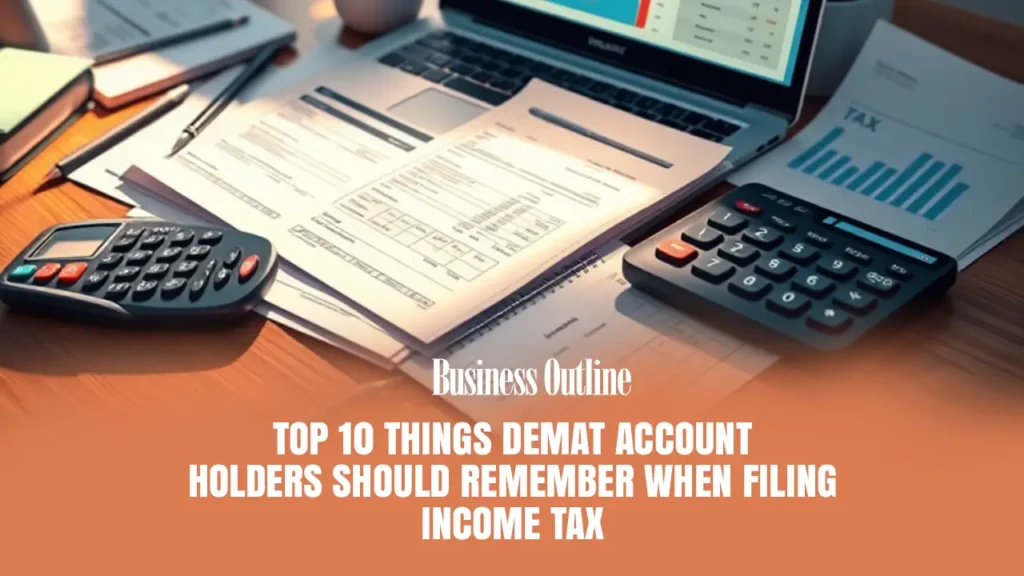A Demat account makes investing convenient when you invest in mutual funds, shares, bonds and ETFs. However as the financial year ends and the tax season arrives, investors are unaware of the process of reporting their income. This often calls for penalties, notices and loss. This article shares 10 things every Demat account holder must consider while filing tax.
1.You must disclose all your capital gains.
If you have made profit by selling shares, mutual funds or ETFs, you must disclose it correctly. If you have sold any equity within 12 months, and made a profit, you will be charged 15% Short Term Capital Gain. However, if you hold for more than 12 months, you will be taxed 10% but only if you have made a profit of more than 1 lakh in a year.
2. Don’t Forget Dividend Income
Mutual funds and companies sometimes give dividends. These are credited to your bank accounts directly. These incomes are fully taxable. They must be shown in the category “Income from other sources” when filing the returns
3. Understand What Expenses You Can Claim
When you calculate your gains, your brokerage charges and transaction fees are adjusted with your Selling price and buying price. But your stamp duty and Security Transaction Tax can’t be claimed as deductions
4. Use Losses to Your Advantage
Let’s say you made a loss while trading. You can set this loss against your short term and long term gains. However long term losses can only be set off against long term gains. If you have any unused losses, you may carry that forward up to 8 years, but only when you file ITR on time.
5. Classify Trading Income Correctly
Profits earned from Intraday trading are to be taken as speculative business income. While trading profits from Futures & Options are treated as non- speculative business income. If you are trading actively, then you will need to file ITR-3 and also maintain books of accounts.
6. Reconcile with Tax Records
To ensure that your income matches the record of tax department, you have to check your broker’s statement Form 26AS and Annual Information Statement on ITR portal.
7. Check for TDS on Dividends
If you want to claim credit for TDS deduction you have to verify this in your Form 26AS when you file ITR. Companies deduct TDS at 10% above rs 5000
8. Choose the Right ITR Form
While filing ITR you have to choose ITR -2 if you are only an investor with Capital Gains and dividends. If you have business income from trading, you have to choose ITR-3
9. Keep Proper Documents
If the Tax department asks for proof, you must keep your demat statements, profit and loss reports, dividend certificates, and contract notes ready.
10. Pay Advance Tax if Needed
If the total tax that you have to pay is more than Rs 10,000 in a year, you have to pay advance tax so that there are no penalties.
If you consider these points while filing your returns, you will be able to file it without error, you will save time and the returns will be smooth.
Read more: Top Business Magazine


